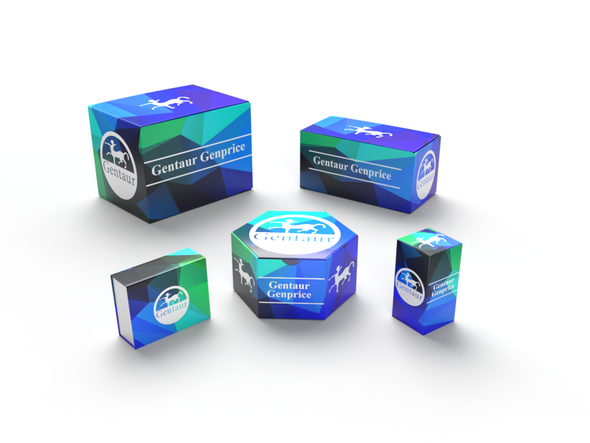Description
FGD4 Antibody | 23-682 | Gentaur UK, US & Europe Distribution
Host: Rabbit
Reactivity: Human, Mouse, Rat
Homology: N/A
Immunogen: Recombinant fusion protein containing a sequence corresponding to amino acids 99-198 of human FGD4 (NP_640334.2) .
Research Area: Other
Tested Application: WB
Application: WB: 1:500 - 1:2000
Specificiy: N/A
Positive Control 1: U-87MG
Positive Control 2: HeLa
Positive Control 3: HepG2
Positive Control 4: A-549
Positive Control 5: Rat brain
Positive Control 6: N/A
Molecular Weight: Observed: 100kDa
Validation: N/A
Isoform: N/A
Purification: Affinity purification
Clonality: Polyclonal
Clone: N/A
Isotype: IgG
Conjugate: Unconjugated
Physical State: Liquid
Buffer: PBS with 0.02% sodium azide, 50% glycerol, pH7.3.
Concentration: N/A
Storage Condition: Store at -20˚C. Avoid freeze / thaw cycles.
Alternate Name: FYVE, RhoGEF and PH domain-containing protein 4, Actin filament-binding protein frabin, FGD1-related F-actin-binding protein, Zinc finger FYVE domain-containing protein 6, FGD4, FRABP, ZFYVE6
User Note: Optimal dilutions for each application to be determined by the researcher.
BACKGROUND: This gene encodes a protein that is involved in the regulation of the actin cytoskeleton and cell shape. This protein contains an actin filament-binding domain, which together with its Dbl homology domain and one of its pleckstrin homology domains, can form microspikes. This protein can activate MAPK8 independently of the actin filament-binding domain, and it is also involved in the activation of CDC42 via the exchange of bound GDP for free GTP. The activation of CDC42 also enables this protein to play a role in mediating the cellular invasion of Cryptosporidium parvum, an intracellular parasite that infects the gastrointestinal tract. Mutations in this gene can cause Charcot-Marie-Tooth disease type 4H (CMT4H) , a disorder of the peripheral nervous system. Multiple alternatively spliced transcript variants encoding different isoforms have been found for this gene.






